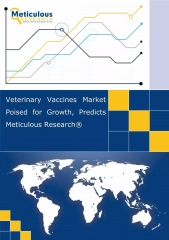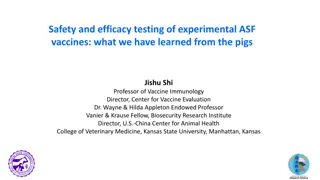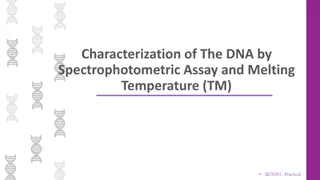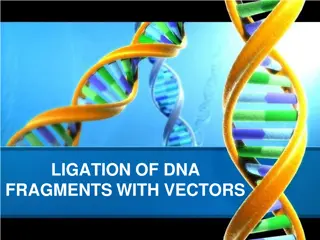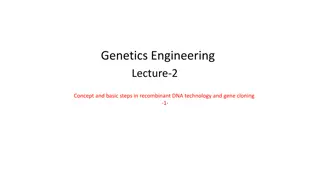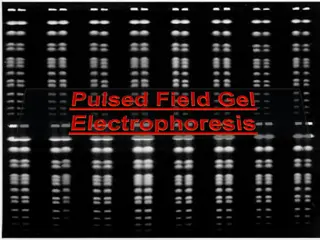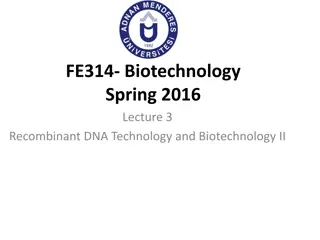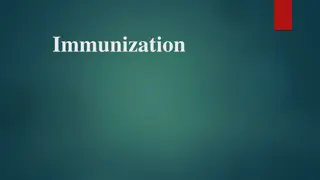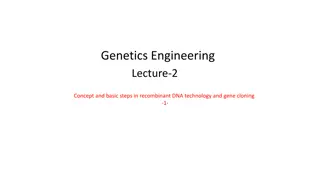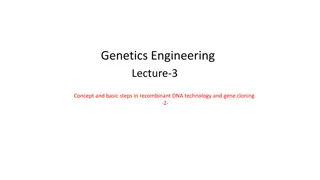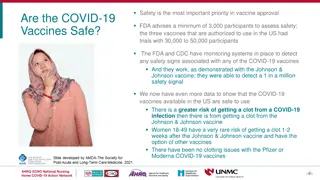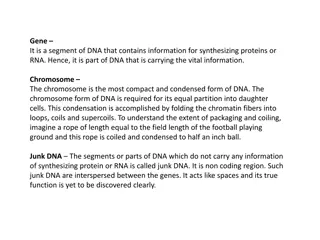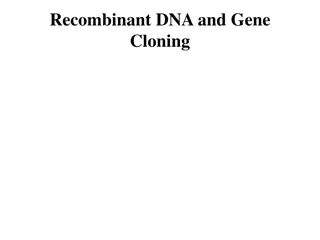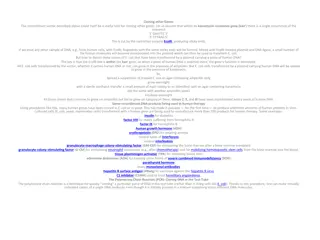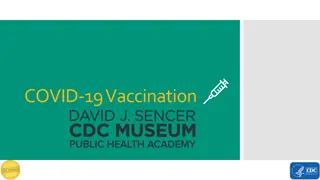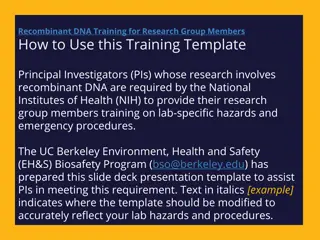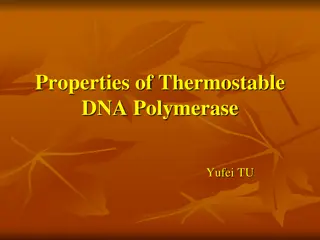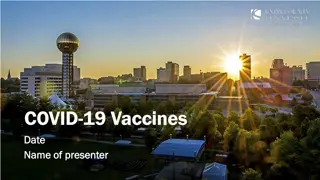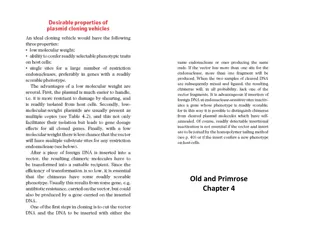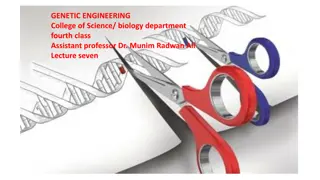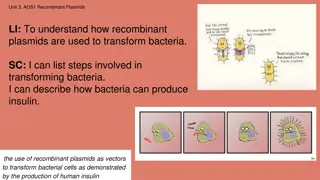Engineering Recombinant DNA Vaccines: Goals and Outcomes
In a Biology course, students will learn about DNA vaccine development, including steps like gene insertion, ligation, and vector selection. The focus is on understanding the process and creating recombinant HPV vector vaccines.
Download Presentation

Please find below an Image/Link to download the presentation.
The content on the website is provided AS IS for your information and personal use only. It may not be sold, licensed, or shared on other websites without obtaining consent from the author.If you encounter any issues during the download, it is possible that the publisher has removed the file from their server.
You are allowed to download the files provided on this website for personal or commercial use, subject to the condition that they are used lawfully. All files are the property of their respective owners.
The content on the website is provided AS IS for your information and personal use only. It may not be sold, licensed, or shared on other websites without obtaining consent from the author.
E N D
Presentation Transcript
Nekeisha Nogal, Gabriel Pineda, Keith Neeves, Judy Schoonmaker, Delphi Chatterjee, Diane Ordway, Erika Tinoco
Goals and Outcomes Unit: Engineering recombinant DNA vaccines Goal: To understand the molecular biology sequence of antigen vaccine Goals for Today: Making a recombinant DNA vector Students will understand how restriction enzymes work Students will understand how DNA ligase works Outcomes 1. Students will be able to organize the main steps in DNA vaccine development 2. Students will be able to recognize the specificity of ligation sites following cleavage by restriction enzymes 3. Students will be able to create a script that applies the concepts of gene insertion
Course Context Biology I or II Freshmen ~100 students Prior knowledge DNA structure Central dogma Restriction enzymes Vaccines and immune response
Have you gotten YOUR HPV Vaccine? 20 million Americans currently infected 6 million infected/yr 50% sexually active people have HPV at some point Recombinant Vector HPV Vaccine http://hplusmagazine.com/2009/08/31/take-shot/ Accessed 8/3/12
Steps in DNA vaccine development Cut vector and DNA insert with restriction enzymes Ligate DNA insert into vector Purify recombinant vector Deliver recombinant HPV vector vaccine Determine coding DNA for insert Identify HPV immunogenic protein Choose a vector Culture transformed bacterial host cells
Steps in DNA vaccine development Identify HPV immunogenic protein Determine coding DNA for insert Choose a vector Cut vector and DNA insert with restriction enzymes Ligate DNA insert into vector Culture transformed bacterial host cells Purify recombinant vector Deliver recombinant HPV vector vaccine
Cut vector and DNA insert with restriction enzymes Campbell Essential Biology with Physiology, Simon et al., 3rd Ed.
The restriction enzymes RE1 and RE2 cut along the red lines: If one sample of DNA was cut with RE1 and another with RE2, and these two samples were mixed and treated with DNA ligase, what would happen? A. DNA cut with RE1 and RE2 would be ligated (joined together) with no preference. B. The RE1-cut DNA would be ligated to itself. C. The RE2-cut DNA would be ligated to itself. D. Both B and C. E. No DNAs would be ligated.
Ligate HPV specific DNA insert into vector 1. Write a script for this movie using these terms: A. Restriction enzyme B. Plasmid C. DNA ligase D. DNA insert E. Sticky ends F. Restriction site 2. Peer review script 3. Turn in revised script to teacher. http://www.youtube.com/watch?v=aA5fyWJh5S0
Have you gotten YOUR HPV Vaccine? 20 million Americans currently infected 6 million infected/yr 50% sexually active people have HPV at some point Recombinant Vector HPV Vaccine http://hplusmagazine.com/2009/08/31/take-shot/ Accessed 8/3/12
Homework Assignment (summative assessment) Make a concept map that shows how a scientist would proceed from a gene sequence for a protein to a vaccine using recombinant technology. You should use the terms below as a skeleton framework. Add as many additional terms as you feel appropriate. Restriction enzyme 1. 2. 3. 4. 5. Vector DNA ligase DNA insert Sticky ends Vaccine
Exam Question (summative assessment) If you had an HPV-specific DNA insert that has sticky ends created by digestion with BamHI, which of the three restriction enzymes below could be used to cut a vector to create a recombinant vector vaccine for HPV? A. BamHI only B. BamHI and BslI C. BslI and EcoRI D. EcoRI only E. EcoRI and BamHI BamHI 5 -G|GATCC BslI 5 -C|GATCG EcoRI 5 -G|AATTC
Alignment Learning Objective Assessment Active learning Low Order/ High Order Students will be able to organize the main steps in DNA vaccine development Formative: Self- check based on key Strip sequence Low Order Bloom 3 Students will be able to recognize the specificity of ligation sites following cleavage by restriction enzymes Formative: Clicker question-two polls Clicker question + peer instruction High Order Bloom 3-4 Students will be able to create a script that synthesizes the key concepts of gene insertion Formative: Peer evaluation Writing script of movie High Order Bloom 5 Summative: Grade the script
Diversity Different learning styles: Kinesthetic strip sequence Visual movie Writing script Auditory movie sounds Different personalities: Activities that appeal to introverts and extroverts


